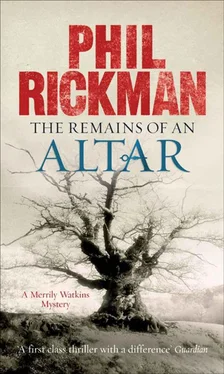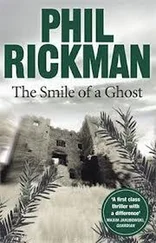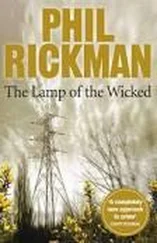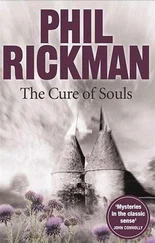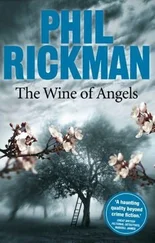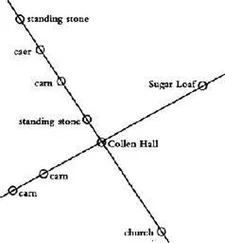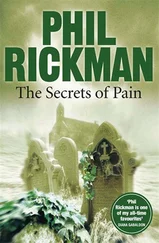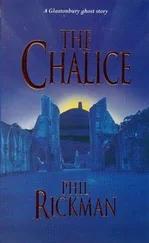Phil Rickman - The Remains of an Altar
Здесь есть возможность читать онлайн «Phil Rickman - The Remains of an Altar» весь текст электронной книги совершенно бесплатно (целиком полную версию без сокращений). В некоторых случаях можно слушать аудио, скачать через торрент в формате fb2 и присутствует краткое содержание. Жанр: Триллер, на английском языке. Описание произведения, (предисловие) а так же отзывы посетителей доступны на портале библиотеки ЛибКат.
- Название:The Remains of an Altar
- Автор:
- Жанр:
- Год:неизвестен
- ISBN:нет данных
- Рейтинг книги:3 / 5. Голосов: 1
-
Избранное:Добавить в избранное
- Отзывы:
-
Ваша оценка:
- 60
- 1
- 2
- 3
- 4
- 5
The Remains of an Altar: краткое содержание, описание и аннотация
Предлагаем к чтению аннотацию, описание, краткое содержание или предисловие (зависит от того, что написал сам автор книги «The Remains of an Altar»). Если вы не нашли необходимую информацию о книге — напишите в комментариях, мы постараемся отыскать её.
The Remains of an Altar — читать онлайн бесплатно полную книгу (весь текст) целиком
Ниже представлен текст книги, разбитый по страницам. Система сохранения места последней прочитанной страницы, позволяет с удобством читать онлайн бесплатно книгу «The Remains of an Altar», без необходимости каждый раз заново искать на чём Вы остановились. Поставьте закладку, и сможете в любой момент перейти на страницу, на которой закончили чтение.
Интервал:
Закладка:
27
Bugger-All
Tim Loste’s house. The heart of the enigma.
A flat, grey Victorian or Edwardian town house that just happened to have been built in the country. A tiny front garden held in by iron railings. An oak tree that shouldn’t be here.
Merrily stepped into the house called Caractacus with some trepidation and an uncomfortable sense of deja vu. Well, not quite, because she knew where this feeling was coming from, remembering when Bliss had invited her to the home of a suspected serial murderer obsessed with the Cromwell Street killings. All black sheets and pin-up pictures of dead celebrities.
‘Stay with me,’ Annie Howe said, ‘and don’t touch anything. We’ve been over it forensically, but- What? ’
‘Nothing,’ Merrily said.
In the dim, narrow, camphor-smelling hallway, she’d come face to face with a dead celebrity.
He was life-size, in bowler hat and hacking jacket. Standing there behind his black, yard-brush moustache and the high handlebars of Mr Phoebus, as if he was about to wheel the bicycle out of the shadows towards the front door.
‘Yes, rather startling at first, isn’t it?’ Howe said.
The black and white photograph, massively blown-up, had been fixed to a wooden frame and propped up against the end wall of the passage so that it filled almost the full width, and when you came in by the front door you were looking directly into the grainy eyes.
Of all the pictures of Elgar, why this one? Merrily had the feeling that the huge, stately Mr Phoebus, important to Elgar, was also very important to Tim Loste: a bike that meant business, could take Elgar anywhere, a symbol of the mobility of the spirit.
It still didn’t have a lamp.
‘What are you thinking?’ Annie Howe said.
‘Just wondering what I’m doing here.’
Howe said, ‘My understanding is that you’ve been here two or three times in the past few days.’
‘I’ve never been here before.’
‘In the village, then. Before and possibly even during the murder of Roman Wicklow. So I thought I’d like to hear about the purpose of your visits.’
‘Don’t you know?’
‘Well, frankly, the version of it that one of my officers was told seemed too ridiculous.’
‘Even for me, huh?’
Merrily had come directly to Loste’s cottage because this was where the police car was parked, along with a silver BMW, presumably Howe’s. There had been a uniformed constable at the gate and Howe, in a mid-grey cotton suit, had been in the front garden, examining the oak sapling. Her fine, light hair was clipped close to her skull, her make-up minimal. Jane had once said she looked like a Nazi dentist. Unfair. Sort of.
Howe opened a panelled door to the right, stepping back.
‘Living room. If you take a careful look around, perhaps you could tell me if there’s anything there that strikes as much of a chord for you as the Elgar blow-up evidently did.’
An atmosphere like a faded sepia photograph and more old photographs hanging from a wooden picture rail all around the mustard-coloured walls. Some of them were portraits of Elgar, some landscapes – Merrily recognized Stonehenge and Glastonbury Tor, but the rest were less easy: unknown hill scenery, might be Malverns, might not. Also churches, none of them obvious, no Hereford or Worcester cathedral, no Malvern Priory.
Over the tiled fireplace was a large framed photo of an obvious oak tree, a huge and ancient one, bulging black against the light. It was the only one in colour, but all the colour was in the sky. On the mantelpiece below it was a scattering of acorns and a bottle of whisky, half empty.
Howe looked at Merrily.
When beneath the sacred oak. Obvious where Howe was coming from. But what could Merrily add to it? Nothing. She was mystified.
‘Well, he… clearly has a fascination with oak trees, Annie. But I expect your well-honed deductive skills had told you that already.’
On the way in, she’d spotted a line of what she’d thought were potted plants until she’d noticed the leaves. Somehow, she felt this was Winnie Sparke’s doing, filling the place – filling Tim’s life – with oak trees. Why? Druidry, Caractacus? What was this about?
‘Maybe he can get some kind of weird buzz by smoking acorns or something,’ Merrily said and then regretted it. Howe was in there.
‘So what exactly have you heard about Mr Loste and illegal drugs?’
‘ Nothing… I was being…’ Merrily sighed. ‘Facetious. Something about you brings out the child in me.’
She looked around. There was a long writing desk with a musical score on it and an empty whisky bottle in the footwell. A bookcase, a CD cabinet. Two leather easy chairs but no television or radio.
‘I mean… what do you want me to say? He has a thing about oaks. How that ties in with the Royal Oak I have no idea. Is that one of the reasons you’ve nicked him?’
Howe said, ‘Do you know of a connection between oaks and Elgar?’
‘No, do you?’
Howe took down a book with pages marked by luminous Post-it stickers. It was a biography of Elgar, whose name, as far as Merrily could see, occurred on the spine of virtually every volume in the bookcase. Howe opened it out on the writing desk. A paragraph was marked by a pencil line.
In July 1918, about two months after the Elgars had moved to Brinkwells, they were visited by their friend Algernon Blackwood, writer of ghost stories. Elgar took Blackwood to see a copse of, according to Alice Elgar, ‘sinister’ trees which were said – although Blackwood may have invented this – to have once been Spanish monks punished for practising black magic. Elgar found them fascinating.
Merrily looked up. ‘Doesn’t say they were oak trees. Where’s Brinkwells?’
‘Sussex.’
‘ Sussex? ’
‘Elgar lived there for a while before returning to Worcestershire.’
‘So what does that tell us? Anything at all?’
‘Evidently not.’ Howe shut the book. ‘But it was the only marked page in any of the books that wasn’t self-explanatory.’
‘I don’t get it. What are you looking for, exactly?’
‘Part of your… curious job, as I understand it, Ms Watkins, is to monitor the activities of religious cults.’
‘Wouldn’t put it that strongly.’
‘Are there practising Druids in the area that you’re aware of?’
‘There are Druids everywhere. It’s a popular form of paganism. No strict rules, no dogma, dress optional.’
‘And the veneration of oak trees.’
‘That’s traditional. And still valid, sure. But if you want me to look around here and tell you that Tim Loste is an obvious Druid, I’d say it was far from obvious… and even unlikely, unless you’ve found robes and pentacles and stuff in his wardrobe.’
Howe said nothing. Merrily was reminded of those infamous satanic child-abuse investigations of the 1980s and 1990s when McCarthyite social workers would seize, as damning evidence, any fragment of conceivably occult paraphernalia, like a broomstick in the broom cupboard or a video of Rosemary’s Baby.
‘Also, modern Druids don’t practise human sacrifice. They tend towards vegetarianism.’
‘Not historically, however.’
Evidently still trying to stitch something onto that texted quote from the choral work after which this house was named.
‘Have you asked him where this sudden interest in oaks comes from? Well, of course you have, but what did he say?’
‘He said nothing. He froze up on me. Why do you think I’m here asking you?’
‘I dunno.’ Merrily shook her head. ‘You’ve got bugger-all, really, haven’t you, Annie? You’re holding this guy on a few tenuous threads.’
‘Let’s go outside,’ Howe said.
Читать дальшеИнтервал:
Закладка:
Похожие книги на «The Remains of an Altar»
Представляем Вашему вниманию похожие книги на «The Remains of an Altar» списком для выбора. Мы отобрали схожую по названию и смыслу литературу в надежде предоставить читателям больше вариантов отыскать новые, интересные, ещё непрочитанные произведения.
Обсуждение, отзывы о книге «The Remains of an Altar» и просто собственные мнения читателей. Оставьте ваши комментарии, напишите, что Вы думаете о произведении, его смысле или главных героях. Укажите что конкретно понравилось, а что нет, и почему Вы так считаете.
